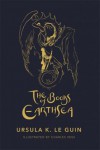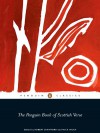Arbie's Unoriginally Titled Book Blog
It's a blog! Mainly of book reviews.
Currently reading
Reading progress update: I've read 42 out of 738 pages.

So far, excluding the prize-winning vignette, it's all been Northland stories. I was surprised to find a recurring character, Malemute Kid, in most. I'm wondering if he's an author insert.
 5
5
Reading progress update: I've read 414 out of 2016 pages.

The Ghost of Lucrece: Middleton's take on the story of Lucrece and Tarquin is to summon their ghosts from Hell and listen as Lucrece gives her complaint. In a period of less than four years, Middleton went from the risible Wisdom of Solomon Paraphrased to this, a vastly more competent effort. It's still a bit muddled, with even the most learned academics still a bit confused between the voices of Lucrece, Tarquin and the author in places but you can read it for more than unintended humour, at least.
 4
4
Thomas Middleton and Early Modern Textual Culture
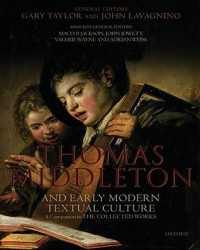
I haven't read this cover to cover. It's divided in to three sections, about the literary culture of the time, the dating and authorship of works attributed to Middleton by the editors and textual notes about e.g. text variants and other detailed editorial matters.
I bought the book because I found, reading the Collected Works this volume is companion to, that I could not dispense with discussion of authorship, especially in cases of collaboration. On that front I have no complaints. The textual notes are not of great interest to me but I have little choice but to accept the editorial decisions made, anyway.
The section on cultural aspects of writing and distributing works in the era was a severe disappointment. The essays are clearly best suited to academic journals and use Middleton and his work as examples simply to justify being placed in this volume. I skimmed or skipped most of these 330p of essays, which could have been interesting if written for a general audience in similar vein to the essays introducing the actual Collected Works itself. I'm still using the book along side the Collected Works regarding authorship and general editorial aspects but I'm done with section I.
 4
4
Reading progress update: I've read 334 out of 683 pages.

It took over nine years for the Argives to decide building defensive earth-works was a good idea, then only a day to build them! Now they are having to defend them to protect their ships. Two warriors hold the gates against the entire Trojan army.
Reading progress update: I've read 325 out of 683 pages.

The grim situation the Achaeans find themselves in is nevertheless not so urgent that Nestor can't stop off to tell a tale of the Golden Days of his Youth...
Reading progress update: I've read 10 out of 738 pages.

London's first published piece was the winning entry in a national writing competition, describing the Story of a Typhoon off the Coast of Japan - not a work of fiction.
 5
5
Reading progress update: I've read 316 out of 683 pages.

Agamemnon and Great Ajax rescue Odysseus but Ajax's own reluctance to retreat gets him into exactly the same situation he just helped get Odysseus out of...
Reading progress update: I've read 25 out of 480 pages.
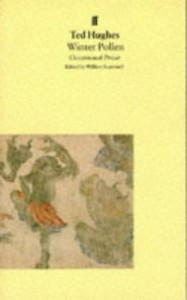
An incredibly vivid account of a dream that told Hughes to give up studying English because it was killing his ideas; his final year at Cambridge was Archaeology and Anthropology, instead.
 1
1
 1
1
Reading progress update: I've read 1 out of 738 pages.

The Introduction is more by way of a potted biography than anything else - but London's life is endlessly fascinating, so no worries! Amusing snippet: London provately referred to White Fang as "The Call of the Tame."
 1
1
Reading progress update: I've read 8 out of 480 pages.

I read this many years ago, not long after publication and failed to get much from it. Now, with a much greater knowledge of Hughes, his life, work and approach to criticism, as well as more familiarity with some of the writers under discussion, I hope to gain more.
 1
1
Little Lord Fauntleroy, Frances Hodgson Burnett
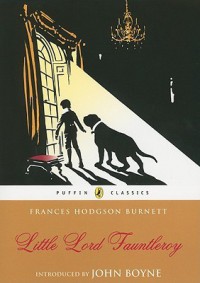
Here's an amusing tale of rags to riches and the impact that has on those surrounding the young protagonist. Charming and occassionally surprising. Perhaps not as good as The Secret Garden, where our protagonists are allowed flaws but I'm glad I got round to this one.
 1
1
 1
1

